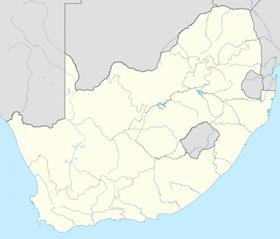
South Africa's fresh produce industry faces a potentially huge new challenge after a study of several of the country's rivers revealed 'unacceptable' and 'unsanitary' levels of human excrement and disease-causing pathogens in the water.
The study, the latest sections of which were published last week in the journal Water SA, was led by food scientist Prof Trevor Britz of Stellenbosch University and, across four volumes published over the past nine months, focused on rivers and waterways in the Western Cape, KwaZulu-Natal, Limpopo, Mpumalanga and North West provinces.
It documents the alarming extent to which pollution in many South African rivers that are used to irrigate agricultural produce now poses a considerable threat to human health and food safety.
'There is a growing concern of the 'safety status' of South African agricultural produce, especially those that are consumed raw,' the report's authors wrote in a summary of the first volume. 'If these products are contaminated they will impact not only the health of the final consumer but also that of people living next to rivers and the producers. This will immediately impact both the national and international 'trading status' and cause a suspension of exports.'
Among the study's latest findings was that water in the Rivers Eerste and Plankenbrug in Stellenbosch, near Cape Town, regularly failed to meet international or national standards relating to the safe irrigation of fresh produce.
That conclusion has been added to the discovery of high concentrations of faecal micro-organisms in a number of other South African rivers, with concentrations reaching 10m cells or coliforms – ten thousand times higher than the level deemed safe by the WHO and the South African Department of Water Affairs.
The research team noted that E coli concentrations in most cases 'exceeded the maximum acceptable guidelines'. It also found a long list of other potential pathogens in the rivers and canals it tested.
'The results of the national study clearly show how unacceptable the standard of many of our rivers are,' commented Prof Britz. 'There is a high risk of exposure to human pathogens when water from the studied rivers is used to irrigate produce that is consumed raw or without any further processing steps.'
Funded by the South African Water Research Commission (WRC) and the Department of Agriculture, Forestry and Fisheries, the extensive research project was launched in 2007 amid growing concern that the country's river water no longer meets exports standards for fresh produce required by the EU, nor indeed health standards set by local authorities or the WHO.
'The findings of the WRC on water quality and food safety that were recently released are of great concern,' said Agri SA president Johannes Möller in a statement. 'The report confirms the organisation's suspicions that river water used for irrigation purposes does not in all instances meet the standards set by the World Health Organisation for food safety.'
He added: 'Bacterial and viral pollution derived from untreated sewerage, in particular, poses a health risk for consumers of vegetables and deciduous fruit irrigated with polluted water.'



